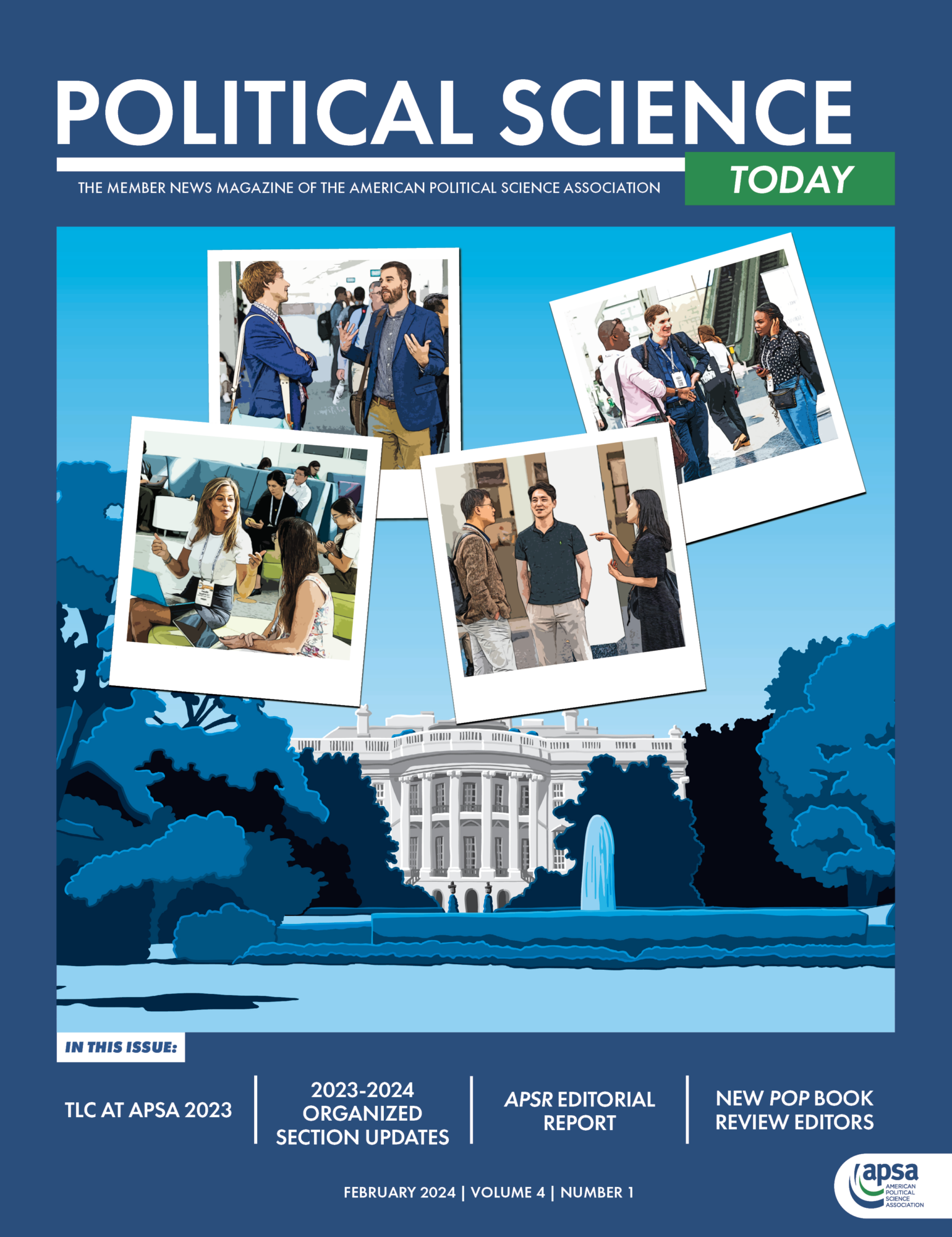Political Science Educator: volume 27, issue 1
Reviews
Harvey, Mark, James Fielder, and Ryan Gibb (Eds.). 2022. Simulations in the Political Science Classroom: Games without Frontiers. Taylor & Francis.
Matt Evans, Northwest Arkansas Community College
This edited volume contains a mix of faculty reflections, explanations about the benefits and drawbacks of simulations, and practical advice on utilizing simulations in the political science classroom. It includes simulations for the branches of the US government, as well as for different situations in international relations. These chapters examine simulations that last single and multiple class periods, and use role-playing real-world people or groups developed by established groups (like Council on Foreign Relations) or the authors of the chapters. Even as someone versed in CFR Model Diplomacy and Model UN, I felt like I gained something from reading these chapters.
The book does have a few limits. First, the book lacks any simulations for comparative politics or political theory. The presidential and federalism simulations that each have their own chapter could be translated into subfields with some modifications. The chapters providing a set of practical skills for the development and deployment of simulations might be helpful, but there are no discussions on parliamentary democracy, economic and political development, political cultures, civil society, or social movement simulations. Political theory also never appears in the book, and it poses a fundamental problem insofar that it remains a subfield and a comportment focused on reading difficult texts (that typically cannot be as easily translated into other modalities like videos, textbooks, and outlines). The Reflections on History game feels like a missed opportunity to ask: how might simulations help draw students into reading texts that they lack no interest or ability to read?
Second, the book (perhaps intentionally) distances itself from critical theory. The chapter titled “I am Che Guevara” does not address the Cuban revolutionary or Marxist theories, but practical guidelines for engaging simulations. The reader of this volume never hears arguments about how happy Karl Marx, Antonio Gramsci, or Theodore Adorno might be with these simulations or what they might play to help their students escape their lecturing. The Situationists in 1970s France developed movies and board games to teach 20th century Marxist theory; Marx himself was a fan of acting; and either topic might make for an interesting topic. We get glimpses of a possible solution with the chapter a “Game of Difference” that seeks to build empathy with different standpoints in the social system (and perhaps intersubjective understanding) through a simulation. The chapter addresses the limits of knowledge and the way people’s location within different social systems structures our experiences and perceptions of realities. While useful, this single chapter cannot fully cover the diverse, conflicting, and converging literatures of critical theory.
The authors of this volume avoid unraveling some of the power relations hidden behind groups like the Council for Foreign Relations, the United Nations, or even the construction of various subfields (like American politics). While agency threads throughout the chapters in different theoretical and topical contexts, the notion of helping students understand agency through the conflict theoretical frameworks that compose political science might be developed and explicated at much greater lengths throughout the chapters.
Nguyen, C. Thi. 2020. Games: Agency as Art. Oxford University Press.
By Colin M. Brown, Northeastern University
Nguyen examines the underlying epistemology of games—how games allow us to experience new forms of agency and provide us a language for communicating and recording agential experiences. In other words, games go beyond a superficial empathy that simply teaches us the logic by which others might think. Well- designed games allow us to temporarily inhabit the perceived choices that others face, and even letting us experience their emotional responses to these choices through fictional-but-meaningful stakes. Playing a game, we can fundamentally learn new ways to be—we can see what we might really do in another person’s place and can develop an even deeper empathy. Games constrain us and temporarily limit our autonomy, but for Nguyen, those voluntary limits bring us an awareness of our agency and of the things that can and cannot be done.
The book lacks any specific practical classroom tips (it does have some great game recommendations, though!), but it fundamentally changed the way that I think about games and simulations in courses. The ability to learn about new forms of agency “from the inside” can be much more powerful than we may think. It is worth remembering that our games are not only teaching about other ways of being, but are also requiring our students to practice these forms of agency. When we teach cooperation in politics—or treachery, or pure rational maximizing—we reinforce our students’ abilities to access and identify these ways of being well beyond the end of class. This is usually good and can often increase empathy for excluded or forgotten others. But when we try to demonstrate a purely selfish view of politics through a game, for example, we cannot always guarantee that these new forms of agency will be used purely for “good” or that the intellectual exercise ends when the game is over.
Published since 2005, The Political Science Educator is the newsletter of the Political Science Education Section of the American Political Science Association. All issues of the The Political Science Educator can be viewed on APSA Connects Civic Education page.
Editors: Colin Brown (Northeastern University), Matt Evans (Northwest Arkansas Community College)
Submissions: editor.PSE.newsletter@gmail.com
APSA Educate has republished The Political Science Educator since 2021.
Any questions or corrections regarding how the newsletter appears on APSA Educate should be addressed to educate@apsanet.org
View APSA Educate’s Political Science Educator digital collection





